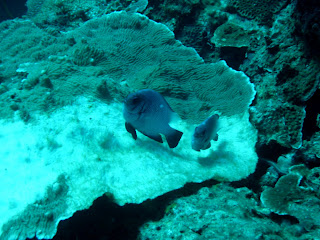Pollution in the ocean is a major problem that is affecting the ocean and the rest of the Earth, too. Pollution in the ocean directly affects ocean organisms and indirectly affects human health and resources. Oil spills, toxic wastes, and dumping of other harmful materials are all major sources of pollution in the ocean. People should learn more about these because if people know more about pollution in the ocean, then they will know more about how to stop pollution.
What are toxic wastes?
Toxic wastes are poisonous materials that are being dumped into the ocean. They harm many plants and animals in the ocean and have a huge impact on our health. Toxic waste is the most harmful form of pollution to sea life and humans. When toxic waste harms an organism, it can quickly be passed along the food chain and may eventually end up being our seafood. In the food chain, one toxic organism gets eaten by another, larger animal, which gets eaten by another animal, and can end up being our seafood. Toxic waste gets into seas and oceans by the leaking of landfills, dumps, mines, and farms. Farm chemicals and heavy metals from factories can have a very harmful effect on marine life and humans.
Many fishermen believe that the toxic chemicals in the ocean are killing much of the fish population. One of the most harmful chemicals in the ocean is lead. Lead can cause many health problems. It can damage the brain, kidneys, and reproductive system. Lead can also cause birth defects for people. It has been shown to cause low IQ scores, slow growth, and hearing problems for small children. House and car paint and manufacturing lead batteries, fishing lures, certain parts of bullets, some ceramic ware, water pipes, and fixtures all give off lead.
Many things found in the ocean may cause seafood to be dangerous to human health. The effect on humans from contaminated seafood may include birth defects and nervous system damage. Medical waste found in the ocean is being tested to see if swimmers have a chance of developing Hepatitis or AIDS. Other waste has been known to cause viral and bacterial diseases. This type of pollution can be stopped by watching what pollution we are letting into the ocean. People are trying to decrease the amount of waste in the oceans by recycling as much garbage as they can so there is a smaller amount of very harmful materials in the ocean.
Boating Pollution Prevention Tips
Whenever someone takes their boat onto the water for a ride, it is creating pollution that can be very harmful to the sea life. Boating pollution is the pollution that comes from the boat’s engine when it is running, and it pollutes the water, killing animals with the chemicals in the exhaust from the engine. The engine gives off excess gasoline, which pollutes the waters and ends up killing the animals. In order to make as little pollution as possible, what everyone can do to help is:
| Only turn a boat engine on all the way when you need to. | |
| Don’t take your boat out into the water if you don’t need to. | |
| Be sure to store and transport gasoline in places where there isn’t any direct sunlight because the gasoline will evaporate, and all of the gases that have been evaporated will pollute the air. | |
| Every year, buy new or cleaner marine engines for your boats. |
Garbage Dumping
Garbage dumping is the dumping of harmful materials into the ocean like human waste, ground-up garbage, water from bathing, and plastics. Most of the waste that has been dumped into the ocean in the early 1990’s is still there today. One main cause of garbage dumping occurs when sewage pipes share their space  with storm water drains. Rainfall causes the sewage pipes to overflow and the sewage waste mixes with the storm water drain, which flows into another water source such as a lake or river. After that, the garbage pollutes the ocean, kills plants and animals in the water (for example, the plastic rings that are around pop cans can get around an animal’s neck, causing it to suffocate), and makes the water dirty.
with storm water drains. Rainfall causes the sewage pipes to overflow and the sewage waste mixes with the storm water drain, which flows into another water source such as a lake or river. After that, the garbage pollutes the ocean, kills plants and animals in the water (for example, the plastic rings that are around pop cans can get around an animal’s neck, causing it to suffocate), and makes the water dirty.





























